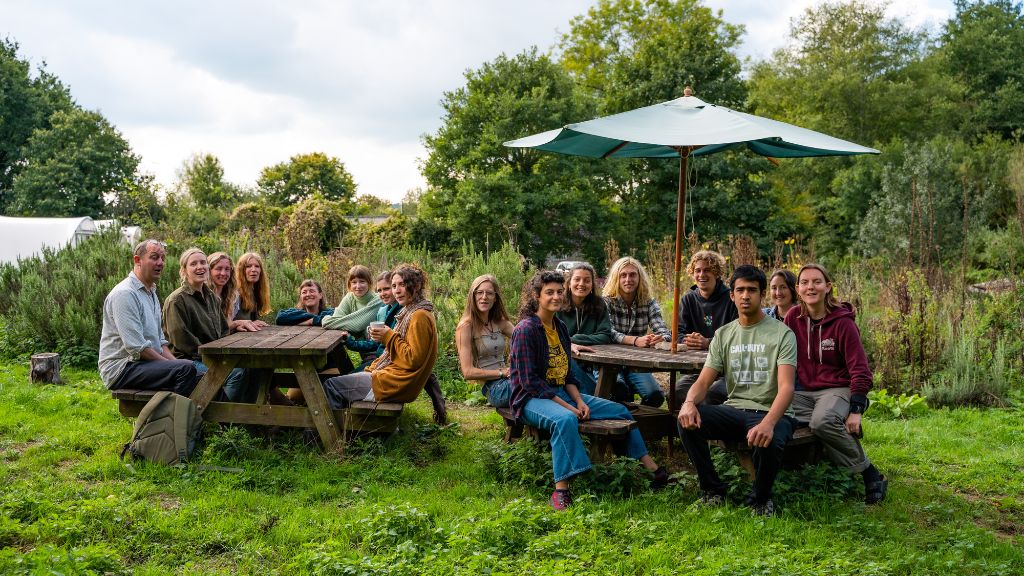
The degree joins the ten postgraduate degrees which are currently available, with more in the pipeline. It builds on the position Dartington continues to carve for itself as an innovator in the teaching of ecological, regenerative approaches to agriculture, land use and culture, and forms part of a broader strategy to cement the Trust as a significant provider of innovative education in the South West.
The new students have now arrived and will be staying at the Old Postern site at Schumacher College for the next three years, learning from experts in the field and exploring the rich patchwork of farming and food production projects based on the estate and nearby. Teaching has begun with a module on global food systems, taking in the bigger picture of government policy and food security, such a highly contested debate in the sector at present, and students will soon drill down into the practicalities of specific regenerative practices and techniques in detail.
The programme lead for the course, Dr Simon Platten, has said of the launch: “It’s so exciting to have the students actually here in person at Dartington. So much work has gone into developing this course over the past few years, from the initial planning of the learning programme and accreditation process with our partner University of Plymouth, right through to enrolling the students last week, so to start the actual teaching now feels like a momentous occasion. So many people have been involved so far, and I’ve be really looking forward to taking up the baton as we start to interrogate really fundamental questions with the students, from the best ways for us to produce the food we eat, to defining the role the farming sector can play in improving the health of our planet.”
The undergraduate students join a growing community of learners of all kinds who are choosing Dartington as a place to study, both at Schumacher College and the relaunched Dartington Arts School.
Dr Pavel Cenkl, Director of Learning at Dartington Trust, said: ““After the closure of the College of Arts twelve years ago, many people observed a change to the vibrancy of the local area. Part of our plan here at the Trust, since I joined three years ago, has been to return some of that energy by developing new learning programmes which are financially accessible and relevant to the current issues of our time.”
“Through a lot of hard work, we are beginning to achieve this, as the student population continues to grow and diversify in a way that’s interwoven with the fabric of this truly remarkable place. I have no doubt that the new students will bring a positive impact not just to the immediate learning community we are building here at Dartington, but also to the broader community in Totnes and beyond. I look forward to seeing the new cohort engage with local businesses and issues, and contribute to the life of our local area in the months and years to come.”
The successful launch of the degree in regenerative farming demonstrates that this corner of South Devon is gaining momentum as a thriving ecosystem of small-scale, ecologically-minded farmers and growers. Students will be exploring this landscape, and learning from the wealth of real-world examples on our doorstep, from our own agroforestry fields, growing spaces and gardens, as well as looking further afield to the biodynamic carbon negative work of the Apricot Centre, the forest garden pioneered by Martin Crawford, the community supported agriculture project at School Farm, as well as at larger establishments like Riverford just down the road.
